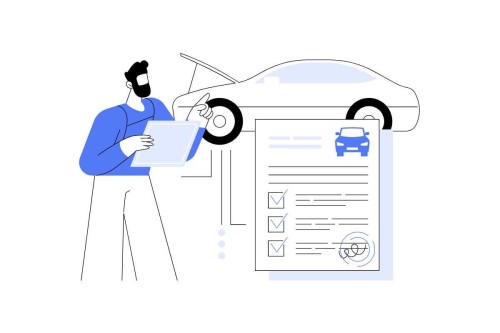
Your accessibility statement is like an MOT Certificate

There is a shared objective, between web accessibility and an MOT test certificate for cars. Ensuring that both products meet standards for usability, safety and inclusivity. While the MOT test certificate verifies a cars compliance with safety and performance standards a web web audit demonstrates a commitment to making digital content usable by everyone, including individuals with disabilities.
The MOT test certificate in the world and a web audit follow regulations. The MOT test certificate confirms that a vehicle complies with safety and environmental regulations assuring consumers that it has undergone testing and meets criteria for safe operation on the road. Similarly a web web audit measures how well a site adheres to established standards like the Web Content Accessibility Guidelines (WCAG 2.2). These guidelines provide recommendations for creating web content and ensuring access, for individuals.
Just as the MOT test certificate guarantees safety and performance on the road an audit indicates the usability and inclusivity of content. An accessible website is designed to be easy to navigate and understand for all users regardless of their abilities or disabilities. It's like making sure a car has safety features such as airbags and seat belts so it can be used by a range of drivers and passengers.
Similar to how a MOT car test certificate builds trust among consumers web accessibility helps establish trust with users. When people visit a website and find it accessible they are more likely to engage with the content trust the information provided and have an experience. Accessibility is not about meeting ethical obligations; it's also crucial for businesses as it expands the reach and audience of a website by catering to diverse user needs.
Regular inspections
In the context of auditing web accessibility comparing it to inspections and audits for cars is apt. Like cars undergo checks to ensure they continue meeting safety standards websites should be audited regularly to maintain accessibility standards. Websites are entities that often change their content and features so regular accessibility checks ensure that these updates don't create barriers, for users with disabilities.
Consequences of neglecting accessibility
Failing to prioritize accessibility can result in consequences to driving a car without a test certificate. Inaccessible websites can pose a barrier, for individuals seeking information, services or products. It's similar to a car that doesn't meet safety standards putting its occupants at risk. Non compliance with accessibility regulations in countries and regions can also lead to complications.
Furthermore both web accessibility and car test certificates emphasize the importance of taking measures. Just as responsible car owners regularly maintain their vehicles for safety purposes website owners and developers should actively design, update and test their platforms to ensure accessibility. This approach helps prevent issues improves user experience and aligns with the evolving landscape of inclusivity.
To sum up
Considering web accessibility as equivalent to a car test certificate highlights the shared principles of safety, inclusivity and adherence to standards. Both concepts underline the significance of prioritizing user well being and creating products that cater to everyones needs. Whether navigating roads or the digital realm adhering to established standards ensures a journey, for all while fostering inclusivity.
Are you interested, in learning more? Feel free to reach out to us regarding an web audit
